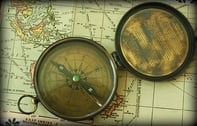Published on
The Need To Keep On Learning

We teachers are, by the nature of our job, professional communicators. When we are fascinated about our topic the enthusiasm quite inevitably shows. It’s hard to hide your passion! Often students get “infected” with it, too, and the quality of their learning increases – sometimes significantly. Yet, learning to be effective in all teaching is an important quality for a professional educator, and our communication plays a huge part in this.
Culturally teaching and learning are seen as key components for creating a better future for the next generation. To ensure this the officials have created/are creating different ways to measure the quality of teaching. The teachers’ performance measures make sense if we think of a teacher’s communicating job only as transferring to students the knowledge the teacher has gained during her/his own formal training. However, this is an overly simplistic view because it omits the student’s responsibility in this interaction. Otherwise we could just substitute all the teachers with fact-spewing robots and expect students to memorize the facts. That is exactly what teaching was in early science fiction novels, isn’t it? And it also perfectly reflects what the view of education was like in the Middle Ages, just transferring knowledge to students who must copy it perfectly without changing anything. Today, we understand that all real learning is very context dependent – or do we?
Learning is a Dynamic Process
The first problem in education is that “taught” is not necessarily “learned”. We always have at least three different curricula happening in the same classroom at the same time: the intended curriculum, the taught curriculum, and the learned curriculum. And I can assure you that those three are not the same! This happens because a basic communication dilemma that plagues all classrooms: the learner interprets the message differently from what the teacher meant. This has been a problem since Aristotle, and probably much longer.
The second problem is that knowledge is simply not static. Many so-called facts are constantly changing – like boundaries of countries. The map of Africa alone has changed several times since I went to school, and I still have hard time keeping up with all the changes in European countries.
So, maybe we should approach teaching and learning, and our communication with our students from another direction. Could knowledge be described as a dynamic process? What if those “facts” we see and hear have a very different meaning to another person? What if knowledge is personal and only information is global? And how does the quality of teaching change with this view?
Information is a basic block of knowledge that can be heard, read, seen, taught or transmitted. This information becomes “real” knowledge after it has been internalized and filtered by an individual, and modified to fit the individual’s worldview (This is an old idea, of course – Piaget used assimilation and accommodation long ago). My point is that there is no point in teaching and assessing those small bits of information, these so-called facts, because what we actually are interested in is the real, deep knowledge our students gain.
We also want to understand the processes our students are using to create that knowledge. The small pieces of information can be gleaned from a book or internet at any given moment. Good quality learning is more about understanding the connections between these bits of information than memorizing huge amounts of them, and good quality teaching relies on true interactive communication to help students understand these connections.
… So Maybe Teaching Should Be a Dynamic Process, too?
Our world is changing faster than ever. History gets rewritten every now and then, as power changes hands or new historical evidence comes to light. Also, things considered to be healthy are changing. Physicians used to recommend smoking to battle obesity and other health related problems, but no more. Technology changes all the time, evolving at such an increasing pace that it is hard to keep up with all the new gadgets and tools. When looked at carefully, it seems very few “facts” are actually facts at all!
How about teaching? Are we still using the same teaching methods that were common hundreds of years ago? I would hope not. We educators must learn to match our teaching styles with the dynamic view of knowledge, and find new ways for facilitating our students’ learning. This is also why an educator can never cease to learn.
In reality, teaching and learning are two separate processes that sometimes happen in the same physical place. Teaching is about communicating one’s own knowledge and understanding of the subject to students who either absorb it as is, absorb it with internal modifications, or discard it. Learning is about constructing a worldview. Facilitating students’ learning means helping your students to construct their own understanding of the subject, and negotiating the meaning of the words and concepts with our students until it makes sense to them.
We teachers don’t like to have someone to come and tell us what to do. Very few students like that either. To have an effective educational system, we must understand that effective teachers are simply facilitators of students’ individual learning processes – and the ones who incite the spark of lifelong learning.
Of course, if you have lost the passion of learning you cannot transfer that to your students either. Facilitating our own learning is the beginning.
What do you need to do to find the old flame, and fall in love with learning again?
Author Perspective: Educator



